Located in Van village, Cam Thach commune, Cam Thuy district, Thanh Hoa province, Rong Pagoda, also known as Long Son Pagoda, is a long-standing spiritual and religious tourist destination for the people.
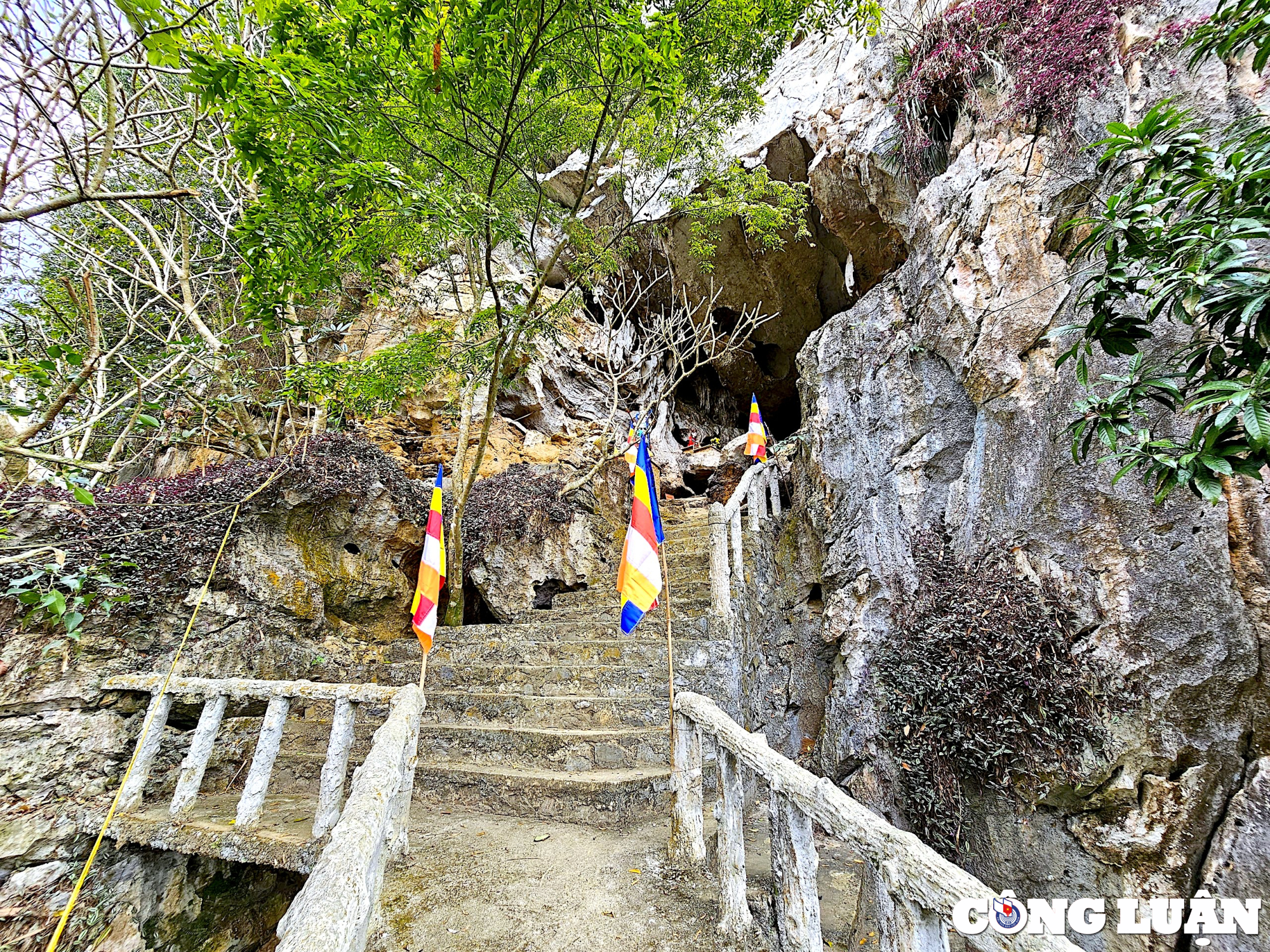
Dragon Pagoda was built during the Later Le Dynasty.
Dragon Pagoda was built during the Later Le Dynasty, at the foot of Dragon Mountain, because the mountain resembled a flying dragon. Dragon Pagoda is a long-standing spiritual and religious tourist destination.
According to elderly people in Van village, Cam Thach commune, during the uprising against the Ming invaders, when Le Loi was traveling north, passing through the mountainous district of Cam Thuy, he saw the scenery of Van village, Cam Thach commune, with its mountains resembling a flying dragon, so he ordered his troops to set up camp and recruit more soldiers.
Later, Le Loi chose this location as his base and searched for caves on Dragon Mountain to store provisions, forge weapons, and use as a training ground for his troops. During his time stationed there, Le Loi fell in love with Pham Thi Ngoc Bich and took her as his concubine. Subsequently, Le Loi had the Dragon Pagoda built at the foot of Dragon Mountain, because he thought the mountain resembled a flying dragon.
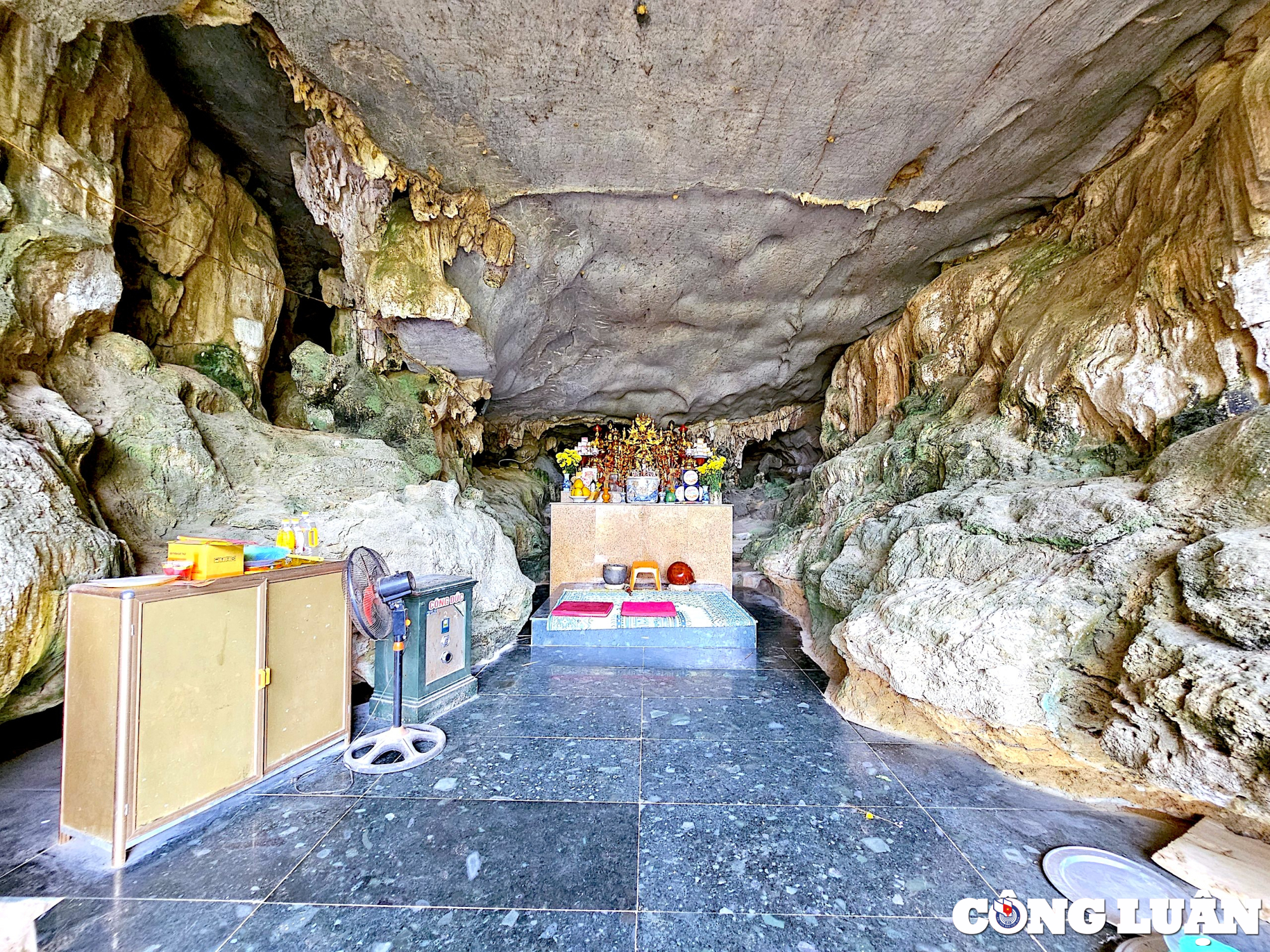
The temple has no roof; instead, it is sheltered from the rain and sun by a stone roof.
Currently, on Dragon Mountain, there are still the blacksmith's forge cave and the buffalo cave; the temple of Mrs. Pham Thi Ngoc Bich is located in Van village, Cam Thach commune. Within Dragon Pagoda, there are two Fairy Wells, with crystal-clear water that never dries up; the locals often call them the "well for children" and the "well for wealth".
Therefore, people who come to the Dragon Pagoda festival all light incense to pray for children, or for wealth and prosperity... From the two fairy wells, going deeper inside, there is another Fairy Cave with rock formations resembling cornfields, potato fields, rice mills, and snow-capped mountains.
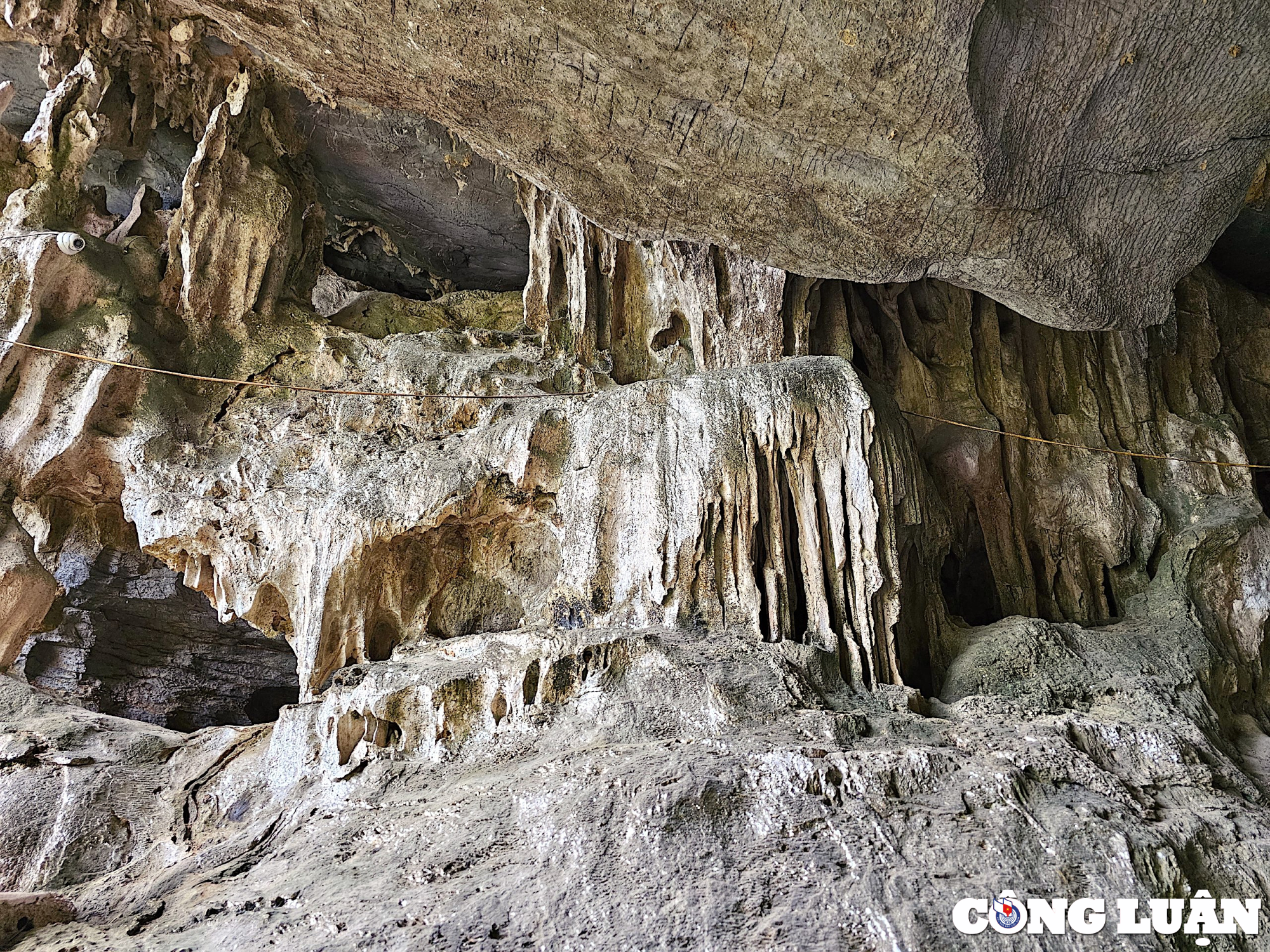
Natural stone slabs in the temple
Above Tien Cave, there are two white stone peach-shaped formations and colorful stalactites that are very eye-catching. Therefore, when attending the Dragon Pagoda Festival, in addition to satisfying their spiritual needs, visitors also enjoy climbing the mountain, visiting the pagoda, and appreciating the beautiful scenery inside Tien Cave.
With its cultural and historical values and beautiful natural landscape, in 1992, Dragon Pagoda was classified as a provincial-level historical relic.
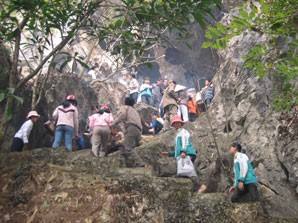
People flock to Dragon Pagoda to participate in the festival, light incense, and pray for good fortune. (Archival photo)
Unlike many temples in the lowlands, the Dragon Temple is part of the Muong people's temple system, situated in a cave, facing dry rice fields, surrounded by dense forests and mountains.
The Dragon Pagoda is located in the limestone mountain range of Van village, which was formerly the center of Muong Pham, also known as Thach Lam. This was a large Muong, a cultural region of the ancient Muong Pham people, and the center of the other Muongs: Muong Tram (Cam Thanh), Muong Pua (Cam Lien), Muong Vam (Cam Luong), and Muong Danh (Cam Binh).
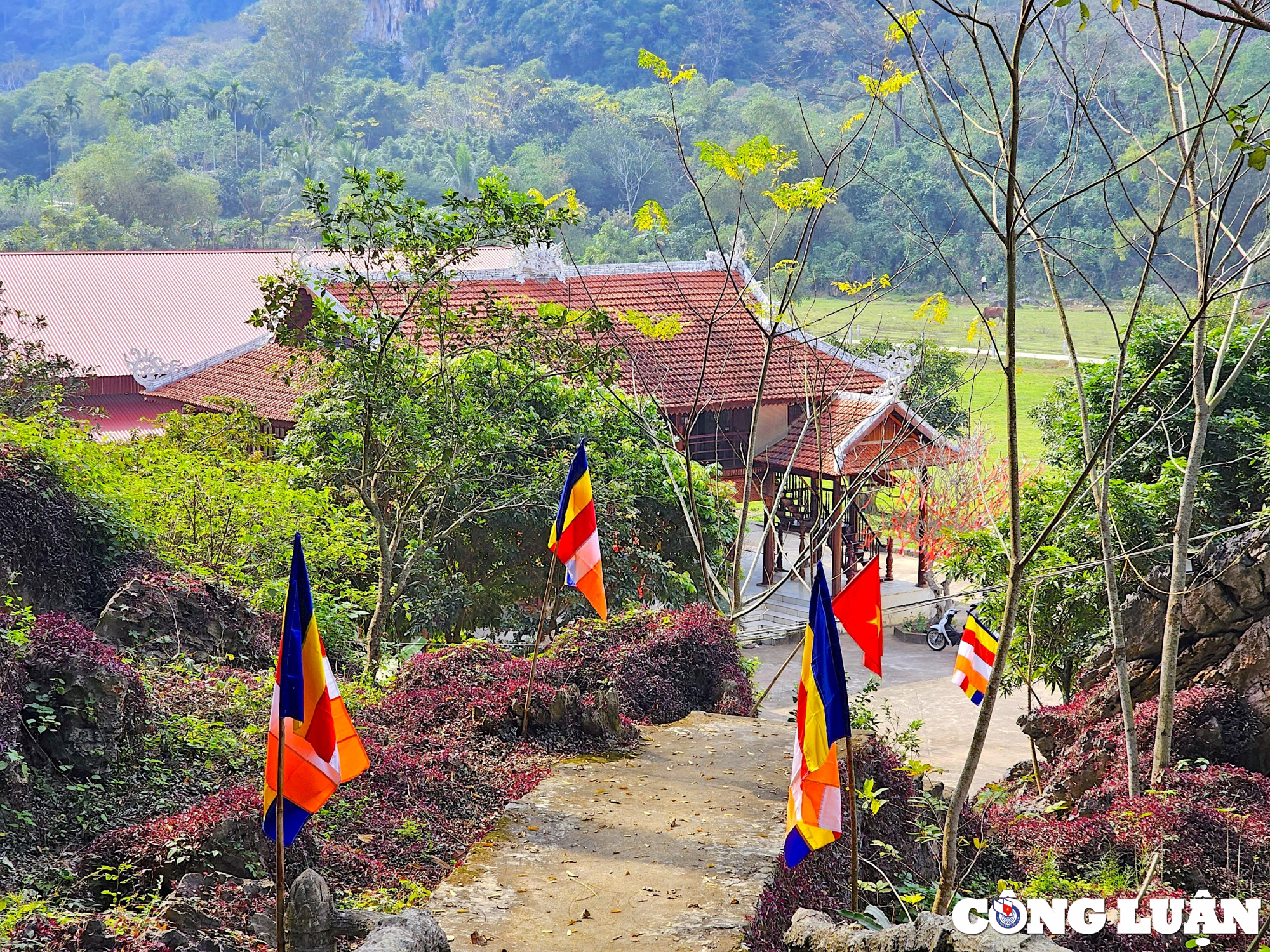
The Dragon Pagoda is located in the limestone mountain range of Van village.
The path leading up is paved with stones or leveled with stones, and the stone steps are simple. Inside the temple, there are pedestals built to place Buddha statues for worship. Dragon Temple also has a medium-sized, very beautiful bronze bell.
Dragon Pagoda has many caves such as Buffalo Cave, Salt Cave, and Thung Pho Cave, with a wild, natural beauty that creates an attractive and unique landscape for this place.
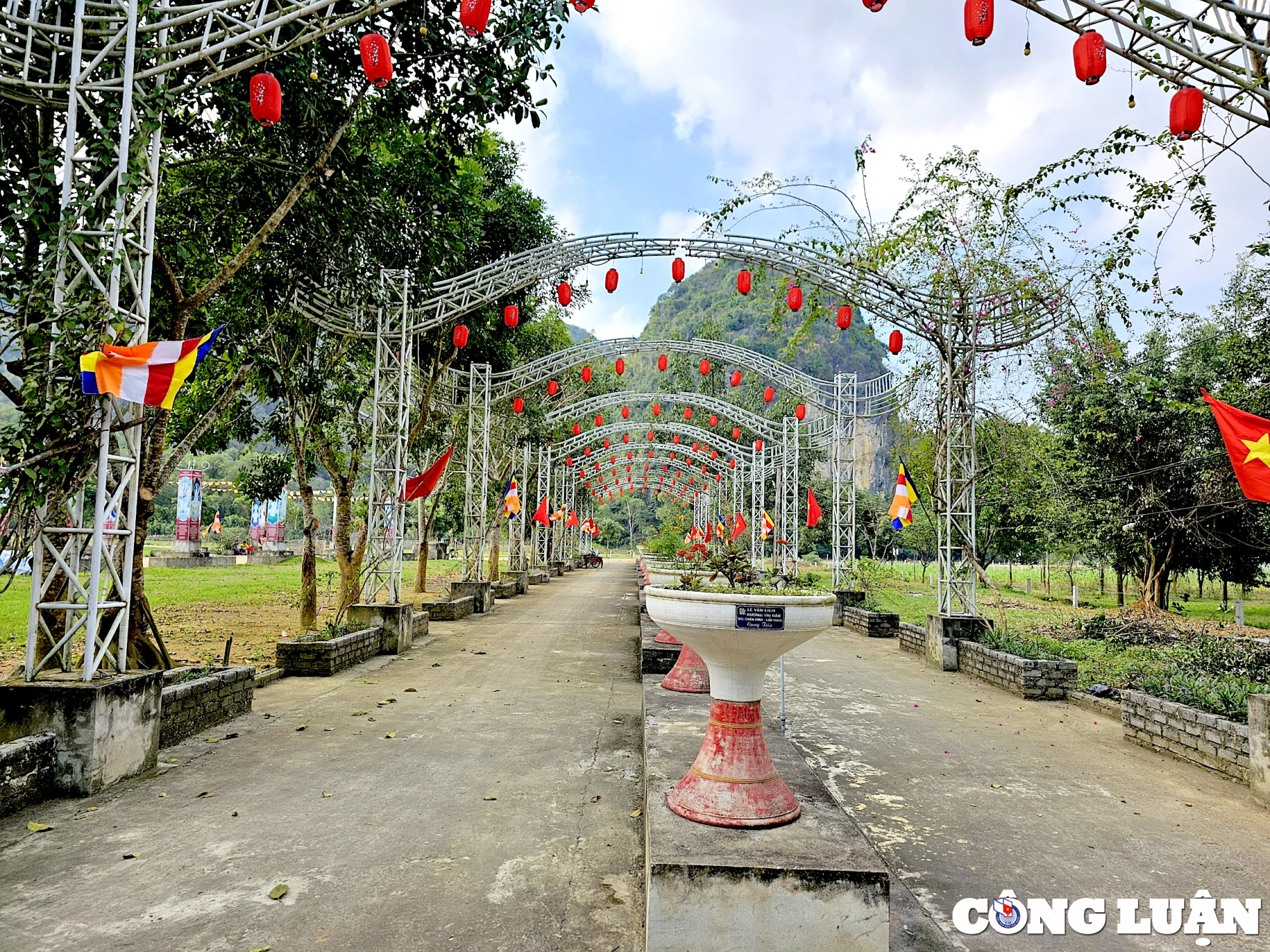
Entrance to Dragon Pagoda
The temple has no roof; instead, it is sheltered from the rain and sun by a stone roof. According to assessments, Dragon Temple remains a pristine cave temple. At the foot of the temple, to the northeast, there is a well with clear, cool freshwater year-round. The spacious and tranquil atmosphere of Dragon Temple offers locals and tourists a sense of peace and relaxation.
To beautify the spring of the Year of the Dragon 2024, in the days leading up to Tet, the monks and Buddhist followers of Rong Pagoda have created models and decorated miniature scenes to bring more joy and warmth to everyone who comes to the pagoda to visit, worship Buddha, and seek blessings at the beginning of the year.
The Dragon Pagoda Festival is held annually by the local people on the full moon day of the first lunar month to venerate Buddha, express gratitude for the merits of the heroes and valiant soldiers of the Lam Son army, and pray for national peace and prosperity, favorable weather, and bountiful harvests.
Ha Anh
Source


![[Image] Central Party Office summarizes work in 2025](/_next/image?url=https%3A%2F%2Fvphoto.vietnam.vn%2Fthumb%2F1200x675%2Fvietnam%2Fresource%2FIMAGE%2F2025%2F12%2F18%2F1766065572073_vptw-hoi-nghi-tong-ket-89-1204-jpg.webp&w=3840&q=75)






























































































Comment (0)